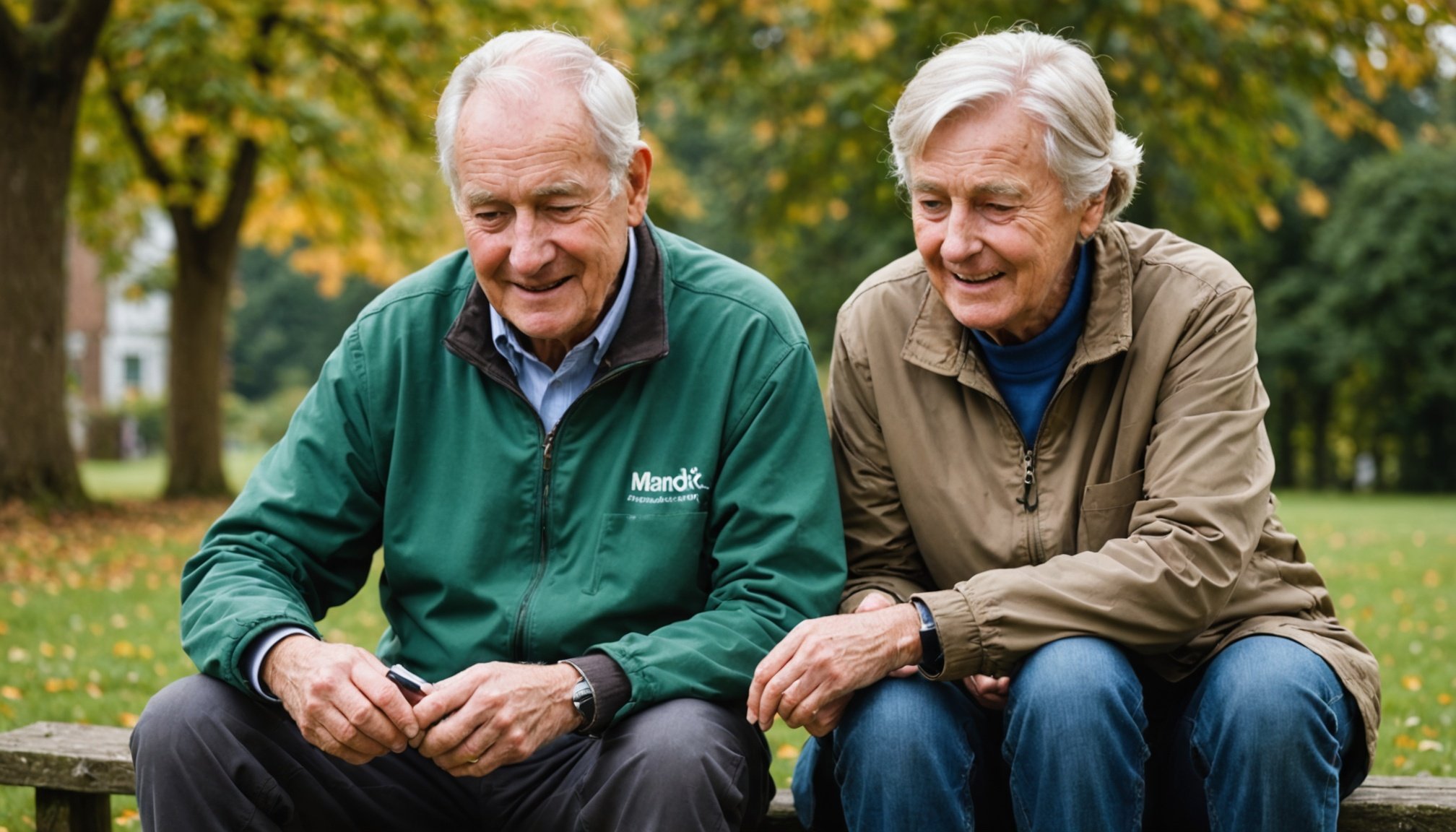Understanding the Relationship Between Volunteering and Mental Well-Being
Volunteering is more than just a noble act—it significantly enhances the mental well-being of individuals, especially older adults. In the UK, where an aging population necessitates focused well-being initiatives, the importance of mental health cannot be overstated. For older adults, maintaining mental well-being is as crucial as physical health. It encompasses emotional stability, cognitive function, and the ability to manage life’s challenges effectively.
Recent studies highlight the impressive statistical significance of volunteering on mental health. Volunteers report higher levels of life satisfaction, lower rates of depression, and improved quality of life. For older adults, engaging in community activities can reduce feelings of isolation and provide a sense of purpose and belonging.
Have you seen this : The Impact of Daily Natural Light Exposure on Mood Among UK Office Workers: Unlocking Wellness in the Workplace
Research conducted across the UK demonstrates that regular participation in volunteering activities correlates with a noticeable increase in happiness and mental alertness among seniors. These findings are supported by structured surveys and interviews, affirming the positive effects of social engagement on mental health.
In summary, the act of volunteering is a powerful tool for enhancing well-being. For older adults, in particular, it provides an avenue to remain active, connected, and mentally robust as they age.
Also read : Unlocking Mental Clarity: How Outdoor Rock Climbing Benefits UK Adults
Positive Effects of Volunteering on Older Adults
Engaging in volunteer programs can have profound positive impacts on older adults’ lives. It provides not just an opportunity to give back, but numerous benefits that enhance both mental and emotional well-being.
Psychological Benefits
Volunteering is a powerful tool to bolster mental health benefits among the elderly. It commonly results in increased happiness and life satisfaction, offering a fulfilling way to spend their time. By participating in volunteer activities, older adults often experience reduced feelings of loneliness and isolation, as they interact with others and feel part of something larger than themselves. Additionally, volunteering has been shown to improve cognitive function, keeping the brain active and engaged through various tasks and challenges.
Social Connections
Beyond its psychological rewards, volunteering helps older adults build meaningful community ties. It enables them to develop new friendships and support networks, which can be crucial in times of need or personal trials. As they engage in social interactions, they also enhance their social skills, making it easier to connect with others and create a sense of belonging.
Sense of Purpose
For many older adults, volunteering fosters a renewed sense of purpose. Contributing to the community boosts their self-esteem and reinforces their identity, playing a significant role in influencing overall life satisfaction. In a stage of life where purpose can seem elusive, volunteering provides a compelling way to add meaning.
Factors Influencing Participation in Volunteering
Understanding what influences volunteering, especially for older adults, involves examining a range of elements. Participation barriers often deter potential volunteers. For older adults, such barriers can include health restrictions, transportation difficulties, and lack of awareness about opportunities. Addressing these issues requires tailored strategies that prioritize the accessibility and flexibility of programs.
Motivation plays a crucial role in volunteering choices. For some older adults, motivations can be social, including the desire to meet new people or reconnect with the community. Personal satisfaction and the wish to contribute to a meaningful cause also drive older adults to participate. When volunteering programs are able to align tasks with these motivational factors, participation levels tend to increase.
Furthermore, the impact of personal health is significant. While some older adults may face physical limitations, programs that accommodate diverse health needs by offering versatile task options can foster inclusivity. Flexible schedules and duties that match varying capabilities can make volunteering more inviting.
Finally, creating accessible environments—whether through location, transport, or communications—can vastly improve participation rates. Offering clear information, support networks, and easy access to locations ensures reduced participation barriers, thus enhancing the overall volunteering experience for older adults.
Volunteering Programs Available in the UK
In the UK, there is a rich abundance of volunteer opportunities tailored to enrich both communities and the lives of volunteers.
Local Community Initiatives
Many Community Services across the UK offer diverse volunteering options. For older volunteers, organisations like Age UK and the Royal Voluntary Service play a pivotal role. They not only provide opportunities but also support and training specifically for those looking to make a difference in their later years. Case studies reveal successful projects, like gardening groups or mentoring programmes, enhancing local neighborhoods while utilizing the immense life experience older adults offer.
National Campaigns and Support
On a larger scale, national initiatives such as Volunteering Matters and the National Citizen Service provide resources and programs, promoting engagement across the country. To foster older adults’ participation, there are numerous support systems and even tech-based platforms that simplify matching skills with needs. Digital tools enable older volunteers to connect with suitable roles efficiently, promoting active involvement and satisfaction.
Testimonials from Older Volunteers
Personal stories affirm the transformative impact of volunteering on older participants. Positive narratives frequently highlight a sense of purpose, community integration, and the satisfaction of contributing to society. Lessons learned often include newfound friendships and the joy of lifelong learning. Feedback suggests that well-structured programs are warmly received and foster further engagement.
Expert Opinions and Research Findings
Exploring the benefits of volunteering for older adults can yield valuable expert insights. Psychologists and gerontologists often highlight the positive effects on mental health improvement. Interviewees reveal that engaging in voluntary work can foster a sense of purpose and increase social interaction, which are crucial for mental well-being.
Several research studies delve into these effects in detail. For instance, a 2020 study by the Journal of Gerontology highlighted that regular engagement in volunteering activities significantly increases the quality of life for seniors. Participants reported better emotional resilience and lower levels of stress and anxiety, underscoring the link between active volunteering and mental health improvement.
Looking forward, experts like Dr. Jonathan Fielding predict a growing emphasis on community-based programs that cater specifically to older adults in the UK. Such initiatives aim to create structured opportunities for seniors to contribute meaningfully, enhancing their mental health and overall life satisfaction. Future research studies may explore new dimensions of volunteering, such as digital engagement, especially relevant in our increasingly online world.
As this area continues to evolve, understanding how volunteering impacts individuals remains a topic of expert insights and innovation, pointing towards a promising future for older adults’ involvement in community services.











